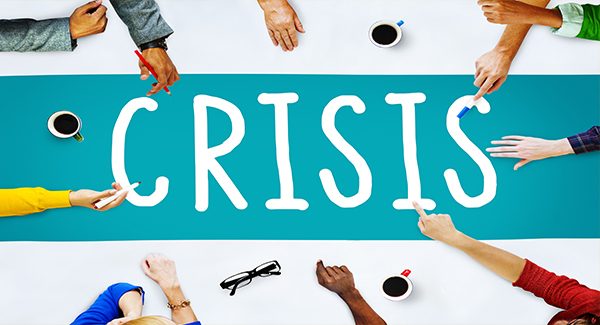No one wants to have to deal with an emergency situation or natural disaster (ex. earthquake, flooding, tornado, wildfires) in their condominium, homeowner (HOA), or townhome association. But board members, community leaders, and property managers should be proactive in their preparation to handle a crisis.
An association’s emergency plan should incorporate action steps to mitigate harm. The plan should also include specific strategies to communicate with residents during different stages of an emergency.
Whether you are formulating a new plan or reviewing an existing one, here are a few tips to consider when preparing to communicate effectively in a crisis.
1. Secure a template ahead of time
Writing crisis communications from scratch creates unnecessary stress on top of a developing emergency. It can delay the delivery of urgent messages as board members discuss wording and distribution. Time and energy can be devoted where needed when the message is at least in draft form.
A good template will use concise language to quickly convey key information. Flowery language and unnecessary details make it difficult to find crucial information related to safety and security.
2. Information distribution
Email updates, alerts, and newsletters are a great way to make sure each member of the association is receiving all the information they need during a crisis. Make sure to regularly update home and unit owners’ email addresses so you have an updated list available when needed.
Additionally, updating the association’s website may be beneficial depending on the nature of the emergency.
3. Delegate roles
It’s best to have a single spokesperson to keep messaging consistent. This designation also prevents multiple board members from sending redundant – or worse, conflicting – messages to the community.
4. Be direct
Share honest and accurate information about the impact of the crisis and the actions that are being taken to mitigate the situation. Don’t try to hide the extent of damage or risk. Avoid exaggerating the success of any mitigating efforts that have been implemented. As fellow members of the community, home and units owners will appreciate the transparency.
5. Sign-off of social media
Facebook, Instagram, and Twitter are not appropriate platforms to share crisis communications or any other sensitive association information. While social media is certainly a quick way to spread the word, it can also invite panicked reactions, accusations, or other unfounded claims to be made in comment sections.
6. Board’s duty
Before disaster strikes, board members should become familiar with the parameters of their duty to the community and to preserving the health/safety of their community.
While the association’s board is not obligated to protect residents from any and all dangers that may arise (ex. making sure residents seek shelter during a hurricane or tornado), board members do have a general responsibility to act reasonably and preserve the overall health/safety of the property and its residents. This includes working with association vendors (maintenance, property management, etc.) to regularly inspect common areas for hazards and schedule repairs.
It’s important to keep in mind that boards generally have the ability to use common funds to take emergency action designed to stave off issues that could potentially threaten the structure/health of the property and its residents.
Before an emergency arises, it’s critical that the board consult with legal counsel to understand its rights and obligations before it is too late. This will ensure that if a concern does arise, the board will be prepared to act promptly.
Conclusion
Board members, property managers, and community leaders will feel more confident and minimize liability if they are called upon to manage a crisis in their community by:
- Following safety regulations
- Regularly evaluating a crisis plan
- Reviewing governing documents with the association’s legal counsel
When condominium, homeowner (HOA), or townhome association boards are prepared to respond to a crisis and communicate effectively with their residents, it can make the association a safer place to live.
Do not hesitate to contact our law firm if your association has questions regarding your crisis communication plan, governing documents, liability concerns, or other legal concerns. If our law firm can be of assistance, please call 855-537-0500 or visit www.ksnlaw.com.
This article is made available by the lawyer or law firm publisher for educational purposes only as well as to give you general information and a general understanding of the law, not to provide specific legal advice. By reading this article you understand that there is no attorney client relationship between you and the article author. This article should not be used as a substitute for competent legal advice from a licensed professional attorney in your state. © 2021 Kovitz Shifrin Nesbit, A Professional Corporation.

